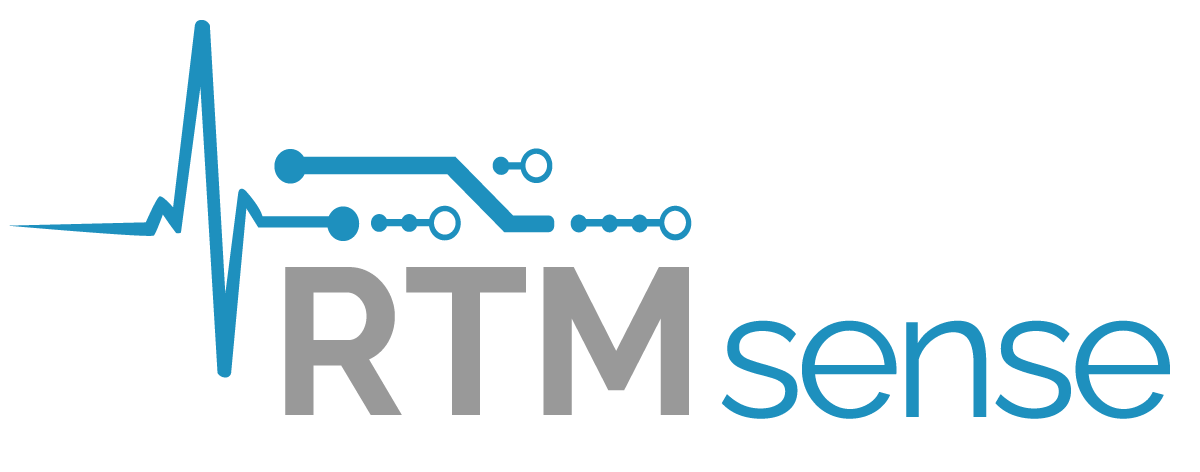RTM Vital Signs LLC
RTM Vital Signs LLC is a Philadelphia-based medical device company focused on transforming healthcare from reactive and hospital-centered to preventive, proactive, evidence-based, and person-centered. Specializing in real-time sensing, monitoring, and analysis of critical health information, RTM Vital Signs targets cardiovascular and respiratory health. The company leverages proprietary, cost-effective monitoring technology, advanced sensors, and AI-driven diagnostic algorithms to provide continuous, real-time health status tracking for both hospital and ambulatory patients. Their mission is to enable better health outcomes, lower costs, and improve patient and staff experiences through innovative wearable devices and continuous monitoring solutions. RTM's patented solutions are designed for seamless integration with smart devices and wearables, supporting timely diagnosis, predictive analytics, and improved telemedicine capabilities. Their technology also addresses key public health challenges such as hypertension, respiratory compromise, and opioid-induced respiratory depression, with applications extending to fitness, industrial safety, and veterinary medicine.
RTM Vital Signs LLC
Pennovation Center, 3401 Grays Ferry Avenue, Bldg 450, Philadelphia, PA 19146-2701
Patents
What We Do
A breakthrough wearable device that provides continuous, non-invasive monitoring of respiratory function using AI and ergonomic design. It is FDA-cleared for use in hospital, ambulatory, and clinical research settings, supporting early detection of respiratory compromise and opioid-induced respiratory depression. The system includes the RTMpod (main electronics device), RTMwear (disposable carrier), RTMpack (rechargeable battery), and RTMhub (monitoring and charging hub).
A device designed for real-time, continuous monitoring of cardiovascular health, utilizing proprietary sensors and diagnostic algorithms to assess an ambulatory person’s health status in real-time. Includes multi-user patient monitoring services with digital access for remote monitoring and notifications. The system features a long-term, outpatient-patient-implantable blood pressure sensor that accurately and continuously measures the entire arterial blood pressure waveform and electrocardiogram. Sensor data feeds predictive algorithms to improve diagnostics and medication dosing related to hypertension and other cardiac issues, ultimately leading to prediction and prevention of adverse cardiac events. The prototype has been tested in-vivo and in-vitro, and RTM holds 13 issued patents covering the device and its functionality.
A product focused on monitoring ventilation acoustically, supporting comprehensive respiratory assessment.
A wearable device designed to monitor fitness parameters, including minute ventilation, supporting athletes and the general public in tracking and improving their respiratory fitness and endurance. It enables real-time monitoring of minute ventilation (MV), a critical parameter for fitness and endurance, filling a gap in the market for wearable products that can track both respiratory rate and tidal volume during daily activities, exercise, and sleep.
A solution for displaying and analyzing vital sign data, supporting diagnostic decision-making through advanced algorithms and user-friendly interfaces.
Application Area
Diagnostics
Digital Health Technologies
Show More (10)Key People
News & Updates
RTM Vital Signs received First Prize for Innovation at the 2023 American Society of Anesthesiology Conference, recognizing its breakthrough in respiratory monitoring technology.
RTM Vital Signs was recognized with the TechConnect Defense Innovation Award in 2019 for its innovative technology.
RTM's technology received the FDA Breakthrough Device Designation, highlighting its innovative approach to respiratory monitoring.
RTM has been awarded two NIH grants to support clinical trials and technology development.
RTM was chosen as a case study for MIT’s Entrepreneurship Bootcamp, recognizing its innovation and business model.
A white paper discussing how continuous clinical surveillance can help clinical teams proactively anticipate early signs of opioid-induced respiratory depression, sepsis, and other hospital-acquired conditions by capturing a real-time portrait of a patient’s condition.
